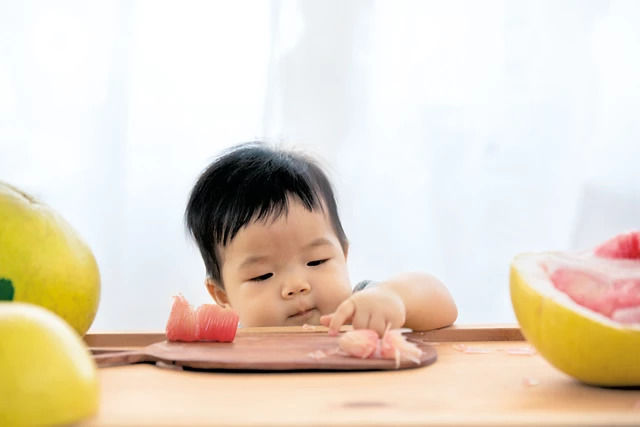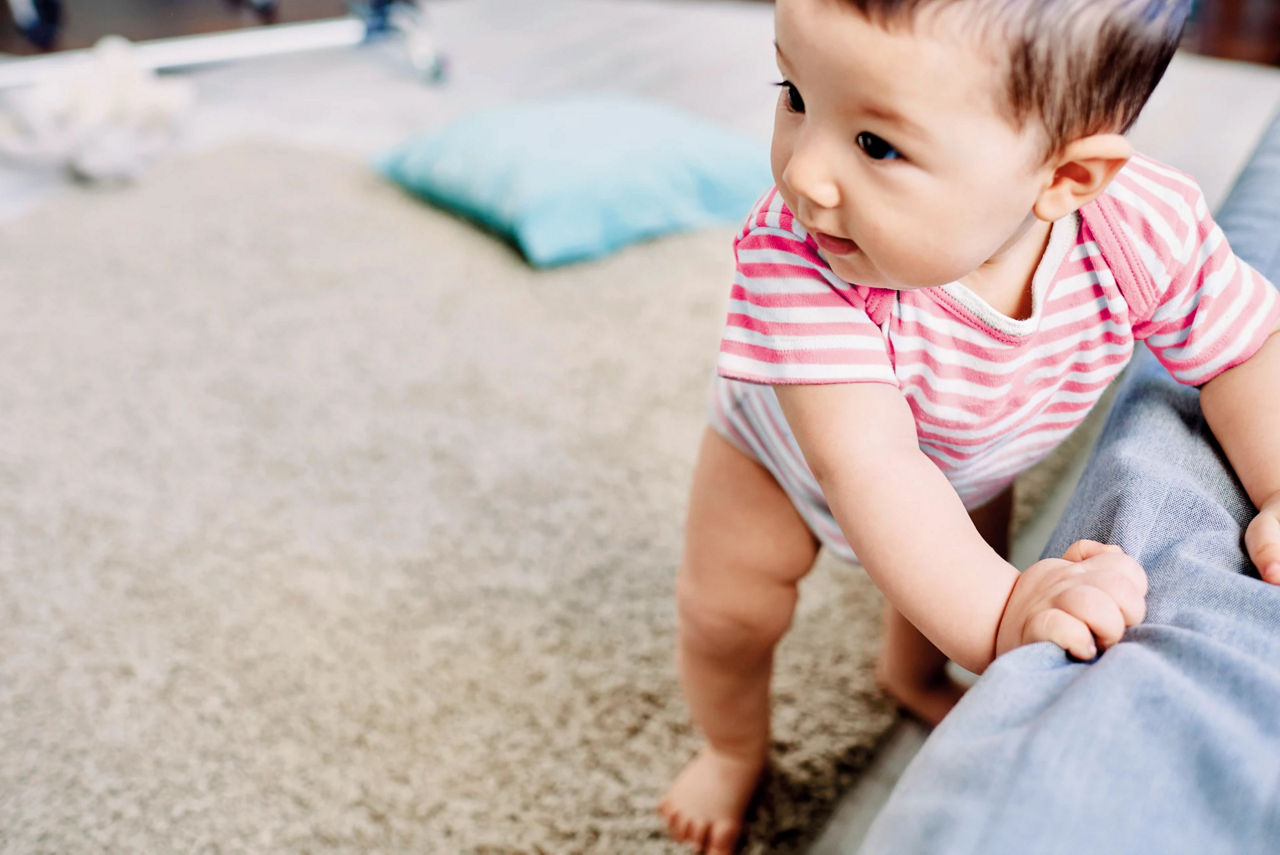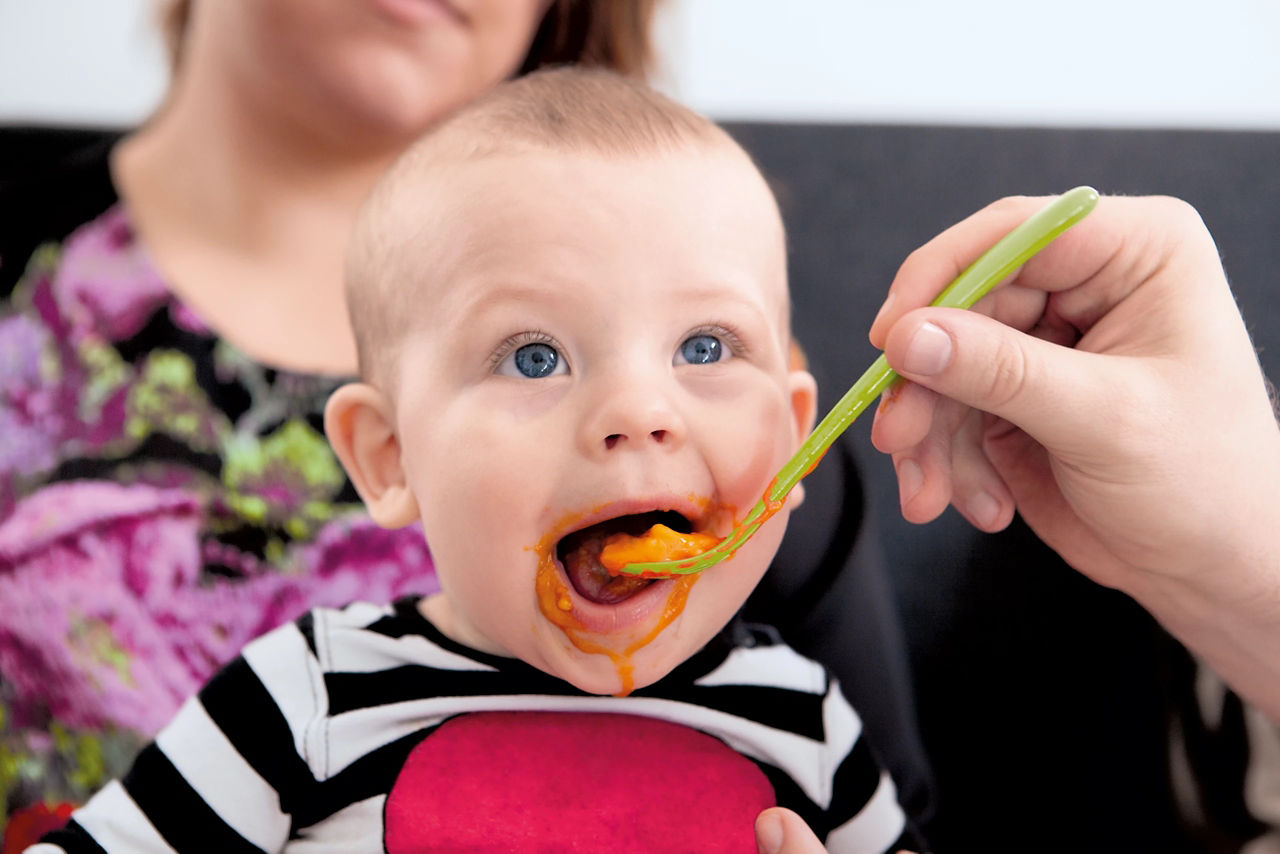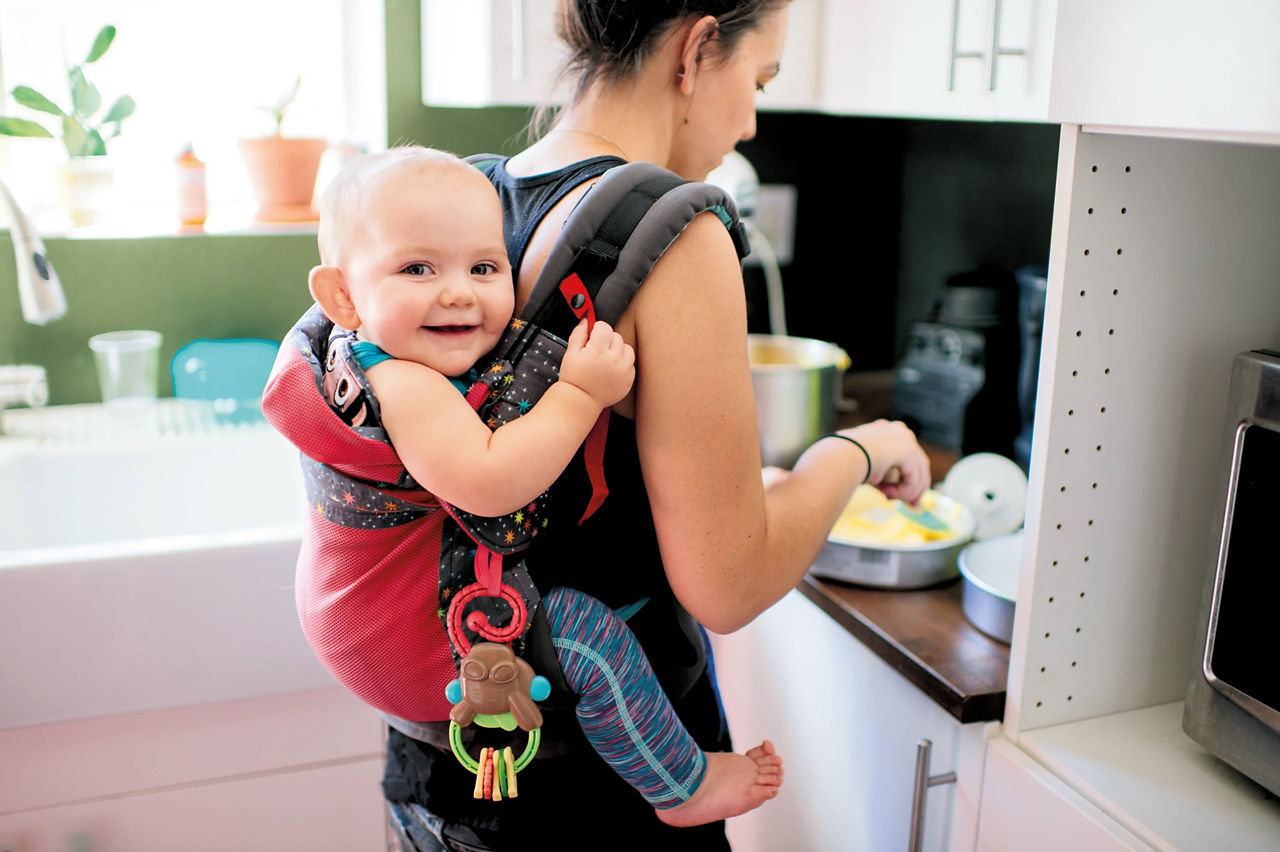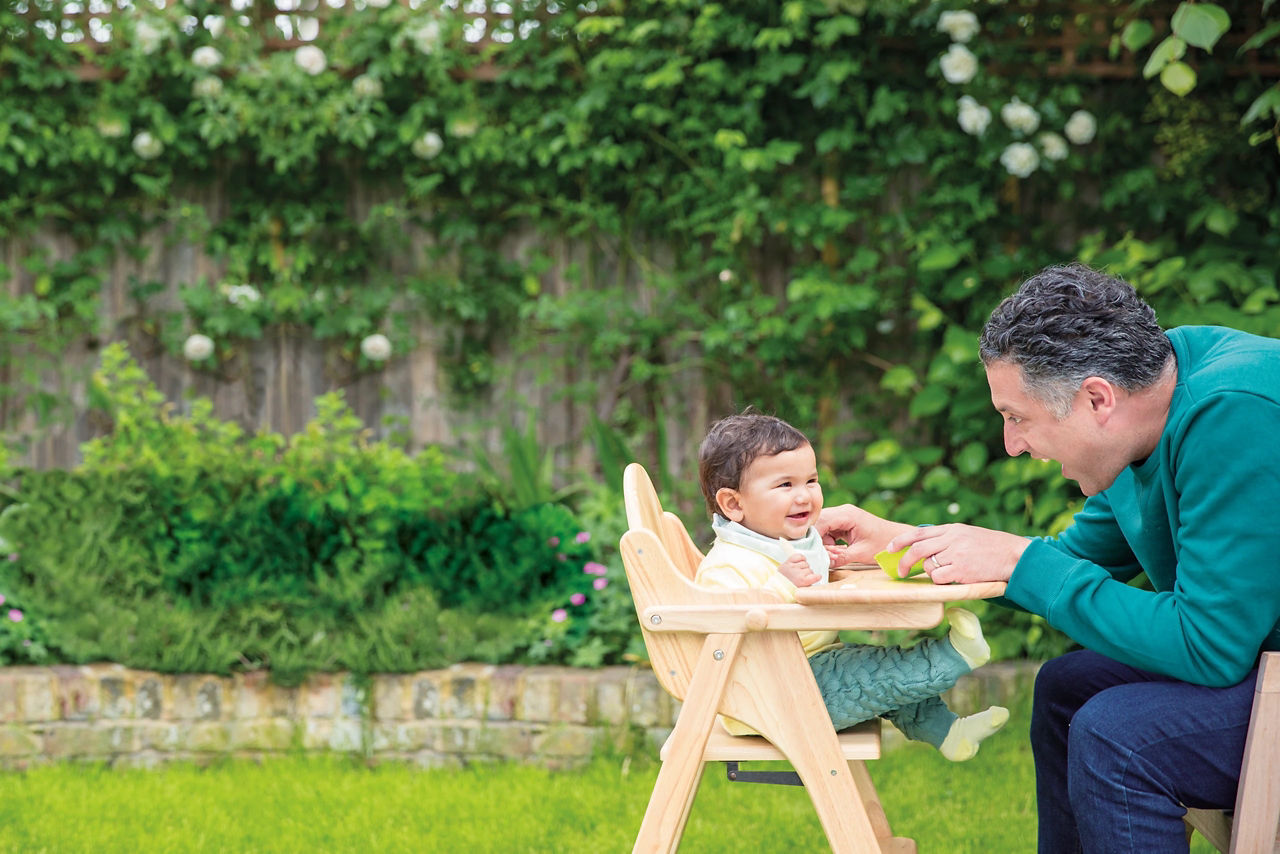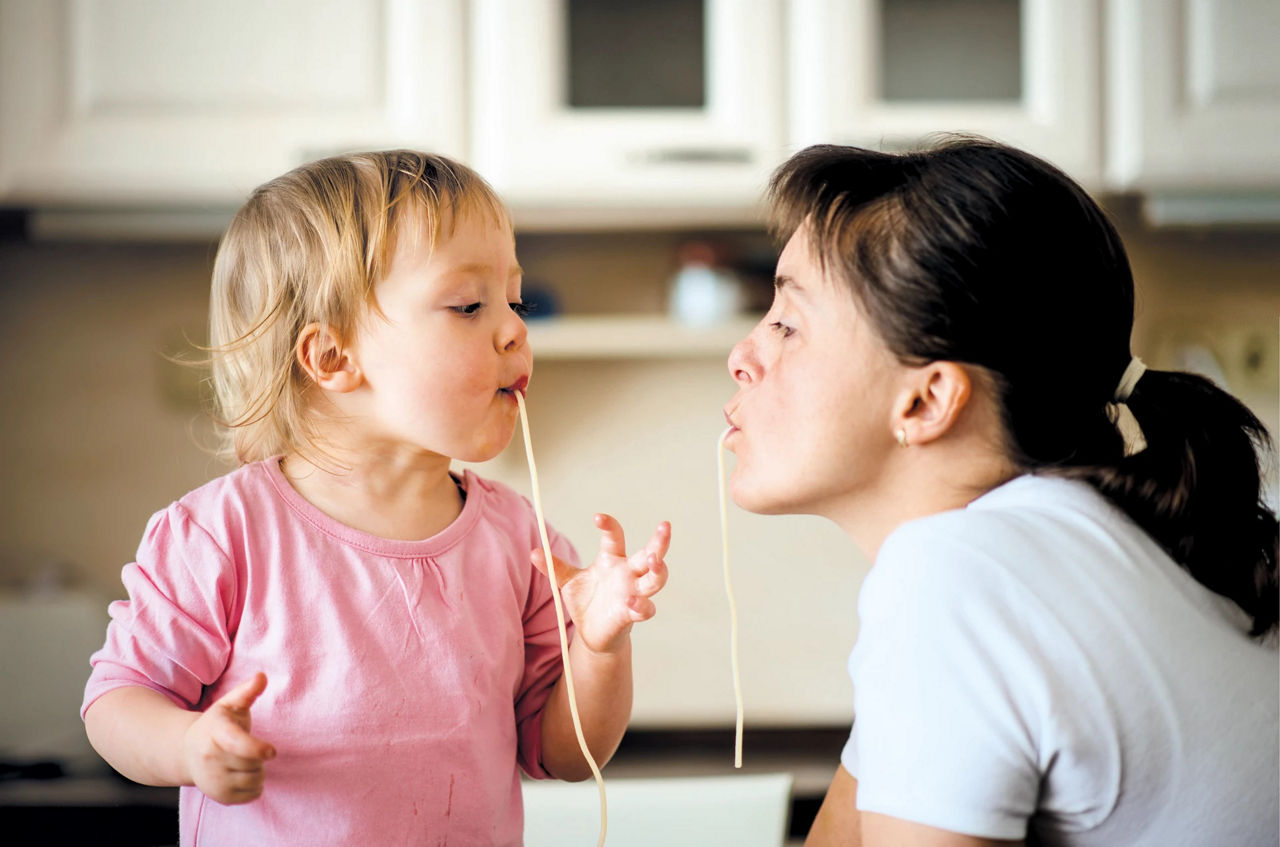Free weaning plan - Register here
When to get started
Weaning is a big change for your baby and they’ve got a lot to learn. It’s important to wait until you’ve noticed the signs that they’re ready for weaning. If you’re unsure, you can ask your healthcare professional for advice. But the FSAI recommend starting weaning at around 6 months. If you’re thinking of starting to wean because they’ve got a bigger appetite than usual, try our suggestions for what to do when your baby is still hungry after a milk feed. They may just be going through a growth spurt!
How to get started
Baby rice is a great first weaning food because you can make it with their usual milk for a familiar taste. This makes the transition easier and your baby will be more accepting of the unfamiliar feeling of a spoon with food in their mouths.
To begin with, try your baby with a teaspoonful or two to ease them in gently. Then build this up gradually with more feeds a day. It’s a good idea not to try and introduce food to your baby when they are too hungry - as they will get frustrated, or too full when they won’t have room for the extra feed. The ideal time is when your baby has had half their usual milk.
Nutrition
Your baby will still get all the right nutrition from their milk feeds, however, they will start to need more than milk to satisfy their appetite. As they grow, food will eventually provide the nutrients your child needs, but for now, it's just about getting your baby used to new textures and tastes.
Texture
Smooth purées, roughly the consistency of double cream, are ideal for learning how to swallow solid foods. Apples, pears, carrots and sweet potato are all easy to cook and blend. Be sure to peel them first though to get rid of any tough skin.
Taste
You can introduce your baby to new, gentle tastes, such as pumpkin, carrot and other vegetables before moving onto puréed meals. Just cook them as you normally would but without any sugar or salt.
Foods to avoid
At this early stage, there are a few foods to avoid – ones they may develop an allergy to. until your baby is 6 months old, it’s best to steer clear of gluten, a protein found in wheat, rye, barley and oats. Eggs and fish should also be avoided until 6 months. Peanuts should be avoided until 3 years of age if there’s a history of peanut allergy in your family.
Important Notice
Breastfeeding is best for babies and provides many benefits. It is important that, in preparation for and during breastfeeding, you eat a varied, balanced diet. Combined breast and bottle feeding in the first weeks of life may reduce the supply of your own breastmilk, and reversing the decision not to breastfeed is difficult. Always consult your healthcare professional for advice about feeding your baby.

Join the C&G baby club today
- Weekly emails with tips and advice for your stage
- 1-to-1 support from our dedicated Careline team, 8.30am - 5.30pm Monday to Friday.

Join the C&G baby club today
- Weekly emails with tips and advice for your stage
- 1-to-1 support from our dedicated Careline team, 8.30am - 5.30pm Monday to Friday.
More from baby
Baby topics
Any more questions?
Our specialist baby advisors and experienced mums are here to talk and ready to help whenever you need them. You can call us or reach us on Live Chat 8.30am-5.30pm Monday-Friday.
Phone
Call 1800 570 570
FAQs
For all the latest information
Email Us
Send us an email
8.30 am - 5.30pm Monday-Friday
